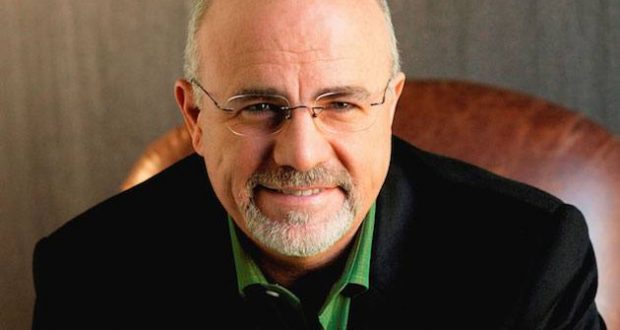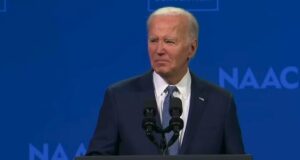Need some financial advice? Debt and income crisis? Pay off the house mortgage first? Check cashing? Taxes? Credit Cards? Check out what folks are asking Dave Ramsey.
Good news and bad news
Dear Dave,
My wife and I are in our late twenties, we have no debt, and our household income is about $180,000 year. We’re thinking about building a home, but we’re not sure whether to build just for us, or maybe building a multi-family place so we could live upstairs, rent the rest, and make some money. Your advice would be appreciated.
Joel
Dear Joel,
If you’re looking strictly at quality of life considerations, like privacy and having a little room to yourselves, a single family home is the way to go. But, if making extra money is important to you at this point, a multi-family structure might work. The good news is your tenants would be right there. The bad news is your tenants would be right there!
From a landlord’s perspective, living next to or above your tenants means you can keep an eye on things a little better. Your tenants might also take better care of the place with you around. But those kinds of situations aren’t always beautiful things. When you’re living a floor or wall away from someone, you’re all up in their business, and they’re all up in your business. It’s not for everyone.
If you’re planning to have kids soon, I’d recommend going the single family route—specifically because of the quality of life. Looking at the other side, you’ll make money with a multi-family construction, but it’ll probably be a pain in the butt. You’ll be giving up some things if you go that route.
Let me put it this way, Joel. I’ve owned a ton of investment real estate in my life, and my wife didn’t want to live in any of those properties. Still, there’s nothing inherently wrong with either decision. Just make sure your mortgage is a 15-year, fixed rate loan, and the monthly payments are no more than 25 percent of your combined take home pay. Save up for a down payment of at least 20 percent to avoid PMI, too.
Take a hard look at the numbers, and make sure you and your wife have a long, long talk about everything. You two should be in complete agreement about every aspect of this situation before moving forward!
—Dave
Don’t embrace the wrong things
Dear Dave,
Your plan has been a lifesaver for us. Why do you think some people are unwilling to listen to good advice, and make changes in their finances?
Tammi
Dear Tammi,
Thank you so much for all the kind words. I’m really proud of you two for putting in the effort and hard work that goes along changing your financial behaviors and gaining control of your money.
I think there are several reasons why some folks resist making changes in their lives, even when those changes would make things a whole lot better and easier for them. One of those things is often denial.
My dad used to tell me 90 percent of solving a problem is realizing and admitting a problem exists. I’m convinced that one of the major factors keeping people from winning with money is they don’t realize they even have a problem. If you are apathetic because you think things like debt and living paycheck-to-paycheck are okay or just the way things are, you’ll be unwilling—or even afraid—to make the big changes necessary to achieve big results. Debt is so ingrained into our culture that most Americans can’t envision a car without a payment, or college without student loans. We’ve been sold on the idea of debt so aggressively that most folks don’t believe life without a pile of payments is possible.
Also, change is painful. Most people won’t change until the pain of where they are exceeds the pain of change. No matter who you are, where you’re at right now financially is, in large part, a sum total of the decisions you’ve made to this point. If you don’t like where you are, you have to acknowledge the fact that things need to change—you need to change.
Finally, there’s an element of ignorance involved. Don’t get me wrong, I don’t mean being dumb or stupid. What I’m talking about is a simple lack of good information. Anyone can learn things, if they’ll just admit they don’t have all the answers and set their minds to studying and educating themselves on a topic. If you’re not careful, what you don’t know about money will make you broke and keep you broke!
—Dave
READ: Dave Says – Long distance flip?
Don’t most people already know?
Dear Dave,
You talk a lot about budgeting, and how important it is in getting control of your money. But don’t most people already have a good idea of what they’re spending, and how much they have in the bank, without going through all the time and trouble of developing an actual budget?
Carter
Dear Carter,
Well, if that were true, why are people paying billions in overdraft fees every year? Why are so many people deep in debt and living paycheck to paycheck, even without taking the effects of a pandemic into account? It’s because most people don’t really know where their money’s going each month.
Let’s start with a simple definition of budgeting. A budget is just a plan. It’s not a restriction on spending, it’s a strategy for what you’ll do with all your money. It’s tracking what’s coming in and what’s going out. When you budget every month, you’re giving your money purpose. You’re controlling your money, and telling it where to go, instead of scratching your head and wondering where it all went.
The word budget gets a bum rap, because some people think it’ll be like putting a straitjacket on their spending and their lives. But that really isn’t true at all. Budgeting actually gives you the power to spend wisely and with purpose. Budgeting even causes feelings of fear, intimidation, and anger in some folks. Sure, it takes a little time and effort at first to create a budget that really works. But once you get the hang of it, and it doesn’t take long, the hard part is over.
Still, to make your cash flow plan work, you have to do it consistently. That means sitting down every month, and making a budget for the upcoming month. Don’t let the fear of what you might find stop you, and don’t over-complicate things. It’s easy as writing down your income and everything that requires money for the month, then doing a little basic math. And once you have a plan in place, stick to it! Too many people get lazy, or “forget” to do a monthly budget.
Give it a shot, Carter. You’ll experience a sense of freedom, security, and accomplishment like you’ve never felt before once you’ve taken that first step toward gaining control of your money!
—Dave
 Metro Voice News Celebrating Faith, Family & Community
Metro Voice News Celebrating Faith, Family & Community









